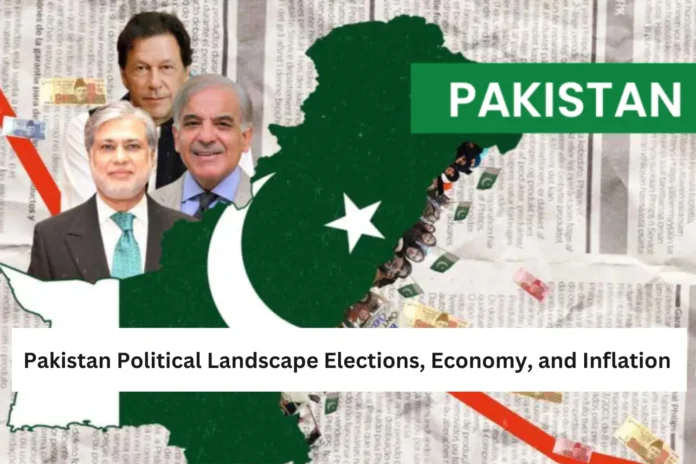Pakistan, a kingdom of over 220 million people, stands at an important moment in its political records. The US faces a myriad of worrying conditions, with political problems, financial concerns, and inflationary pressures topping the list. In this article, we are able to delve into those pressing topics, dropping mildly on the modern scenario in Pakistan.
Election Dynamics
Pakistan’s political panorama has long been characterized by a complicated interplay of political events, military effects, and civilian governments. The maximum recent widespread elections in 2018 noticed Imran Khan’s Pakistan Tehreek-e-Insaf (PTI) upward push to energy, promising a brand new technology of governance.
However, those elections have been not with out controversy, as competition parties alleged irregularities and known as for electoral reforms. Considering that then, Pakistan has witnessed political instability, with competition events accusing the authorities of selective duty and curtailing dissent. The demand for electoral reforms remains a pivotal problem, as a honest and obvious electoral method is critical for strengthening democracy in the country.
Economic Challenges
The Pakistani fiscal system has brazened patient demanding echelons, with a blooming financial deficiency, mounting debt, and low foreign exchange reserves. The COVID-19 epidemic aggravated those egresses, foremost to compression in financial development and aggravating crunch categories. The government’s fiscal guidelines have come along underneath aspect, with critics attesting that austerity bars have disproportionately affected the common citizen Pakistan GDP growth table 2023

Inflation Woes
Inflation has been a continual hassle in Pakistan, affecting the cost of living for millions of Pakistanis. The rise in costs of vital items, inclusive of meals and gas, has positioned a heavy burden on regular residents. The government has tried to control inflation via numerous measures, however the desired results have demonstrated elusive.
Inflation is a multifaceted trouble, with elements together with deliver chain disruptions, electricity prices, and financial guidelines contributing to its staying power. Addressing inflation requires a complete technique, encompassing financial coverage, fiscal discipline, and efforts to beautify productiveness. To cope with those urgent problems, Pakistan have to take a multi-faceted approach.
Electoral Reforms
The government need to work with competition parties to create an independent election commission and enact reforms that make certain readability, justice, and inclusivity within the electoral technique.
Economic Restructuring
Pakistan ought to recognition on expanding its financial system, advertising industrialization, and inviting overseas investment. Structural reforms, together with growing tax collection and lowering the fiscal deficit, are vital.
Inflation Management
The national financial institution of Pakistan need to pursue prudent financial coverage that pursues to stabilize charges even as now not stifling financial growth. Moreover, investments in agriculture and infrastructure can help reduce supply chain disruptions and manipulate meal inflation.
Social Safety Nets
To shield poor populations from the effects of increase and financial difficulty, the government should enlarge social safety nets.
Dialogue and Collaboration
Building unity among political parties and owners is crucial for addressing these issues. Cross-party partnerships can help foster a sense of national unity in addressing Pakistan’s challenges.
Conclusion
Pakistan’s political issues, economic challenges, and inflationary pressures are related and require an entire approach to solution. Moreover, Political balance, economic reforms, and effective management of rise are pivotal for the welfare of country and the good of its people. However, The path forward needs a united effort from all investors to pave the way for a brilliant future for Pakistan and its citizens.





